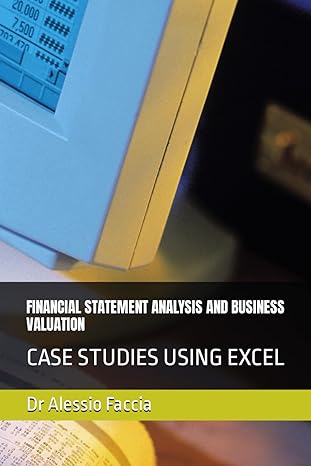Answered step by step
Verified Expert Solution
Question
1 Approved Answer
PR 11-6B Capital rationing decision for a service company involving four proposals Obj. 2, 3, 5 Clearcast Communications Inc. is considering allocating a limited amount
PR 11-6B Capital rationing decision for a service company involving four proposals Obj. 2, 3, 5 Clearcast Communications Inc. is considering allocating a limited amount of capital investment funds among four proposals. The amount of proposed investment, estimated income from operations, and net cash flow for each proposal are as follows: EXCEL TEMPLATE Investment Year Income from Operations Net Cash Flow Proposal A: $450,000 Proposal B: $200,000 Proposal C: $320,000 Proposal D: $540,000 12345 12345 12345 12345 $ 30,000 $120,000 30,000 120,000 20,000 110,000 10,000 100,000 (30,000) 60,000 $ 60,000 $510,000 $ 60,000 $100,000 40,000 80,000 20,000 60,000 (10,000) 30,000 (20,000) 20,000 $ 90,000 $290,000 $ 36,000 $100,000 26,000 90,000 26,000 90,000 16,000 80,000 16,000 80,000 $120,000 $440,000 $ 92,000 $200,000 72,000 180,000 52,000 160,000 12,000 120,000 (8,000) 100,000 $220,000 $760,000 The company's capital rationing policy requires a maximum cash payback period of three years. In addition, a minimum average rate of return of 12% is required on all projects. If the preceding standards are met, the net present value method and present value indexes are used to rank the remaining proposals. Instructions 1. Compute the cash payback period for each of the four proposals. 2. Giving effect to straight-line depreciation on the investments and assuming no estimated residual value, compute the average rate of return for each of the four proposals. (Round to one decimal place.) 3. Using the following format, summarize the results of your computations in parts (1) and (2). By placing the calculated amounts in the first two columns on the left and by placing a check mark in the appropriate column to the right, indicate which proposals should be accepted for further analysis and which should be rejected. 3. Using the following format, summarize the results of your computations in parts (1) and (2). By placing the calculated amounts in the first two columns on the left and by placing a check mark in the appropriate column to the right, indicate which proposals should be accepted for further analysis and which should be rejected. Proposal Cash Payback Period Average Rate of Return Accept for Further Analysis Reject A B C D 4. For the proposals accepted for further analysis in part (3), compute the net present value. Use a rate of 12% and the present value of $1 table appearing in this chapter (Exhibit 2). 5. Compute the present value index for each of the proposals in part (4). (Round to two decimal places.) Answer Check Figure: Proposal B, 1.13 6. Rank the proposals from most attractive to least attractive, based on the present values of net cash flows computed in part (4). 7. Rank the proposals from most attractive to least attractive, based on the present value indexes computed in part (5). (Round to two decimal places.) 8. Based on the analyses, comment on the relative attractiveness of the proposals ranked in parts (6) and (7). Proposal A: -year, -month cash payback period Year and Months Year 1 Year 2 Year 3 Year 4 Net Cash Flow Cumulative Net Cash Flows Proposal B: -year, -month cash payback period Net Cash Flow Cumulative Net Cash Flows Year and Months Year 1 Year 2 Year 3 Year 4 Proposal C: -year, -month cash payback period Year and Months Net Cash Flow Cumulative Net Cash Flows Year 1 Year 2 Year 3 Year 4 Proposal D: -year, Net Cash Year and Months Year 1 Year 2 Year 3 Year 4 -month cash payback period Flow Cumulative Net Cash Flows 2. 3. Proposal A: Average Rate of Return Proposal B: Proposal C: Proposal D: Proposal ABCD = = = = Cash Payback Period Years Months Average Rate of Return Accept for Further Analysis? 4., 5. Year 1 Year 2 Year 3 Year 4 Year 5 Net Present Value and Present Value Index Total Amount to be invested Net present value Present value index Present Value of $1 at 12% Net Cash Flow Present Value of $1 at 12% Net Cash Flow Year 1 Year 2 Year 3 Year 4 Year 5 Total Amount to be invested Net present value Present value index Present Value of Net Cash Flow Present Value of Net Cash Flow 6., 7. Based on net present value calculated in Part 4, the proposals should be ranked as follows: Rank 1 Rank 2 Based on present value index calculated in Part 5, the proposals should be ranked as follows: Rank 1 Rank 2
Step by Step Solution
There are 3 Steps involved in it
Step: 1

Get Instant Access to Expert-Tailored Solutions
See step-by-step solutions with expert insights and AI powered tools for academic success
Step: 2

Step: 3

Ace Your Homework with AI
Get the answers you need in no time with our AI-driven, step-by-step assistance
Get Started


